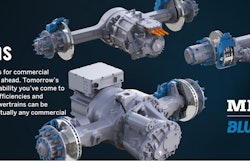Trucking news and briefs for Friday, June 3, 2022:
ATA calls on Washington to take action to lower diesel prices
The American Trucking Associations on Thursday published a blog calling on Washington to take action to lower the price of diesel at the pumps. The group said when fuel costs rise, so do the costs of everything else. “Inflation can’t be controlled without some relief in price of diesel,” ATA said.
“Right now, motor carriers are getting slammed by nightmarish surges in the price of diesel,” ATA said. “It’s especially hard on smaller fleets, which don’t operate at a scale to negotiate rates down or lock prices into a contract. These small businesses account for 97% of trucking companies in the U.S., running 20 trucks or fewer.”
To help solve the problem of soaring diesel prices, ATA calls on Washington to take the following actions:
- Utilize the oil and natural gas found in the Gulf of Mexico by expediting lease sales and permits for offshore energy production
- Fast-track onshore oil & natural gas permitting to spur expanded production
- Announce realistic leasing and development opportunities for onshore & offshore energy
- Expedite permitting for pipelines and other energy infrastructure
- Encourage expedited carbon capture & sequestration rulemaking to ensure that America remains a world-leader in emissions reduction
The group also noted that while battery-electric and hydrogen fuel cell trucks are on the horizon, “decarbonization of the freight sector cannot be realized overnight.”
“Forcing it before it makes economic and technological sense will not accelerate its arrival but instead prolong it,” ATA added. “A large tractor-trailer traveling 100,000 miles per year consumes as much electricity as 18 homes or 44 electric cars. There is simply not enough power on the grid to electrify America's future truck and car fleets, let alone the charging infrastructure.”
ATA also said emissions from new trucks today have been reduced by more than 98% over the last 30 years, noting it would take 60 of today’s clean diesel trucks to equal the emissions of one truck sold in 1988.
“So, as we keep an eye toward the future, it’s imperative that policymakers stay focused on the here-and-now,” the group concluded. “The energy crisis facing motorists and truckers today is compounding a supply chain crisis. The elevated price of diesel now threatens to slide our economy back into recession. We need to expand domestic energy production, and fast.”
Landstar announces CFO change
Landstar (CCJ Top 250, No. 9) Vice President and Chief Financial Officer Fred L. Pensotti will leave the company July 1 "to pursue another professional opportunity," the company confirmed Thursday.James P. Todd has been promoted to Vice President and Chief Financial Officer of the company, also effective July 1. He was also appointed the company’s principal financial officer and principal accounting officer by Landstar’s Board of Directors in connection with his promotion – roles Pensotti also held.
Tdd has served as Landstar System Holdings' vice president and corporate controller February 2015, and served as director and assistant corporate controller of Landstar System Holdings, Inc. from October 2013 to January 2015. He also served as principal accounting officer of the company from November 2020 to May 2021.
New York suspends fuel tax until 2023
New York Gov. Kathy Hochul this week announced the suspension of certain taxes on gasoline and diesel, which took effect, Wednesday, June 1, and will remain suspended through December. The state’s diesel tax rate is 15.55 cents per gallon.
"Fuel prices have surged in recent months, hurting working families and small businesses the most, and it is crucial that we provide New Yorkers relief," Hochul said. "By suspending certain fuel taxes for the next seven months, New York is providing some $609 million in direct relief to New Yorkers -- a critical lifeline for those who need it most.”
Twenty-five counties across the state have also taken action to set temporary caps on the sales tax charged per gallon of gas and diesel.
Also beginning June 1, Delaware, Dutchess, Erie, Monroe, Putnam, Rockland, Saratoga, Schenectady, Ulster, Wayne and Yates counties will collect tax only on the first $2 charged per gallon of gas and diesel, regardless of the actual price at the pump. Seneca County had previously capped its local sales tax in the same manner and continues to.
Allegany, Broome, Cattaraugus, Chautauqua, Jefferson, Livingston, Nassau, Niagara, Oneida, Onondaga, Oswego, Suffolk and Westchester counties will collect tax only on the first $3 charged per gallon of gas and diesel, regardless of the actual price at the pump.
Volvo upgrades I-Shift transmission with dual power take-off
Volvo Trucks North America announced it is upgrading its I-Shift automated manual transmission.
I-Shift now offers a dual power take-off (PTO) that expands the efficiency benefits, transmission functionality and overall cost savings, Volvo said.
The new dual PTO allows I-Shift to incorporate two independently clutched DIN 5462 drives, or one SAE 1410 flange and one DIN 5462 drive, separated by the vehicle’s centerline. By separating the two drives, space is created to allow for the installation of two pumps, simplifying installations and serviceability in the field. The output drives are independently clutched, enabling the vehicle to serve applications either separately or simultaneously.
“Leveraging the new capabilities of a dual PTO in Volvo’s I-Shift transmission increases the truck’s operational versatility, a customer can haul portland cement one day and aggregate material the next,” said Andy Hanson, product marketing manager at Volvo Trucks North America. “Volvo’s factory-installed PTOs and pumps make the up-fitting process easier, increasing first-time quality and overall reliability for our customers.”
The I-Shift transmission with the dual PTO improves functionality, productivity, fleet utilization and versatility, Volvo said, and also compliments the existing single, double and triple PTO suite of offerings.
The PTO’s factory supplied DIN 5462 ports and SAE 1410 flanges are interchangeable with the SAE 1310 flange and SAE-C and SAE-BB ports, which are all offered through Volvo’s parts distribution network. The factory-installed dual PTO, which carries the same warranty as the I-Shift transmission, also includes dash switches to provide independent left and right side control. Volvo-installed PTOs can also receive factory installed Parker gear and piston pumps.
An expanded benefit of the I-Shift transmission is that it comes in 12, 13 and 14-speed configurations. I-Shift is also available with an overdrive gear and crawler gears of either 17.5:1 or 32:1, providing the ability to cruise at highway speeds while still allowing for excellent efficiency, “startability” and slow-speed maneuverability.
Eaton introduces 48-volt exhaust aftertreatment heater
Power management company Eaton announced its eMobility business has introduced a 48-volt programmable power electronics control unit for electrically heated catalysts that can be used by commercial vehicle manufacturers to meet tightening emissions regulations.
Rapidly warming up the exhaust aftertreatment catalyst, and keeping it warm during low engine load operation, is essential for optimal performance to reduce harmful nitrogen oxide (NOx) exhaust emissions, Eaton said.
“Commercial vehicle manufacturers face new challenges generating and controlling this level of electrical power for a single vehicle accessory,” said Tom Stoltz, chief engineer, 48-volt Systems, Eaton’s eMobility business. “Our control unit helps them overcome these challenges and enables electrical integration in meeting future ultralow nitrogen oxide emissions regulations.”
The air-cooled electric catalyst heater controller is part of Eaton’s broader 48-volt electrical system portfolio, which contains several technologies that allow manufacturers to integrate 48-volt components in next-generation vehicles. Eaton’s family of electric heater power electronics controllers are being developed for solutions between 2 kW and 15 kW of power and operate with up to 99% peak efficiency.
The controller is designed to receive power commands from the aftertreatment system, provide soft-start and soft-stop capabilities for assisting in maintaining system voltage control, and diagnostic feedback of the heater element.
This technology comes at a time when vehicle manufacturers are facing tightening emissions standards around the globe. In the U.S., the California Air Resources Board and U.S. Environmental Protection Agency are introducing more stringent regulations in 2024 and 2027. Collectively, the new regulations are designed to reduce tailpipe NOx limits by up to 90%, thus accelerating the need for global engine manufacturers to employ additional emission-reducing strategies such as electric catalyst heating.











